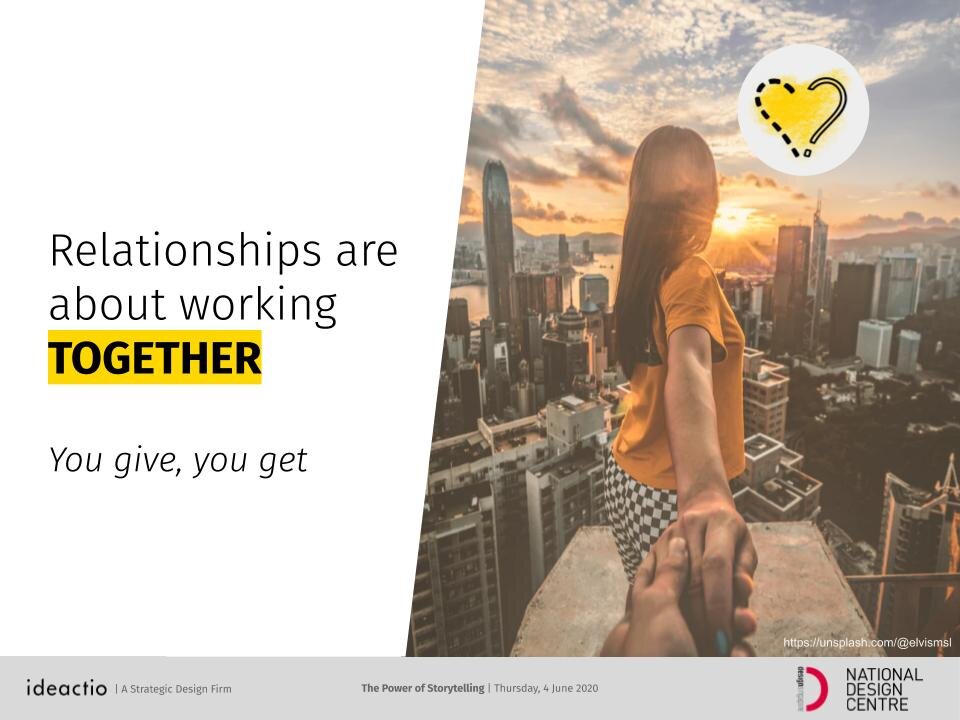The Power Of Storytelling
June, 2020
Why Stories?
As Steve Jobs once said: “The most powerful person in the world is the storyteller.” This is true because our humanity is built on stories that enable our ability to imagine. Stories allow people to naturally connect emotionally, and as Yuval Harari says: “The success of the human species lies in its ability to collaborate in large numbers, guided by belief in shared stories”. Stories have the power to bind us, or divide us, as evident in current times.
At the core of great brand stories are purpose (what is our mission) and values (what do we stand for). Stories provide brands with a way to build a great deal of connection and engagement with their customers, and brands tell stories to build relationships, not to sell their products.
Why Now?
During times of crisis, people are more receptive to the stories that others have to tell. There is a great deal of uncertainty and anxiety about the future, and people are looking around for answers. People are questioning their values, and breaking habits that have long existed. In the process, they are building new behaviors. There are many opportunities for brands to help customers with adopting their new daily routines, and becoming a teacher in learning new behaviour.
Relationships are built over time, as a story always keeps unfolding. They are built as a customer experiences individual touchpoints, slowly getting to know a brand. In this journey, the customer is not just audience but an active participant. This opens a wider door to the heart of the customer, for a more personal relationship (do reach out to us for more information on service design and orchestrating touchpoints).
Brands that provide support and guidance in these changing times will forge strong and lasting relationships with their customers. These stories will be remembered and be told around the campfire: “where were you? what did you do? and with who? during the 2020 pandemic?” In the mind of customers, new heroes will emerge, so invest in the actions that show the role you want to take. Look in the mirror - what can you do to demonstrate your values? This time is an opportunity to reboot existing relationships and actively start new ones. If you are passive, there will be others to do it, and they will emerge as winners.
Our ancestors knew the power of stories: they passed along their stories like torches that might light the way to a better future. Stories will guide us, and the stories that were there to guide us will be remembered.
So How?
Our framework of 5 Commandments to build meaningful stories:
Authenticity: Tell stories that are true to your brand and purpose. Know yourself, tell stories about people (not your product), and stay true to your origins.
Listening: Tell stories that resonate with customers. Sell the sizzle (not the steak), tell the challenge (not the solution), and focus on everyday experiences.
Relevance: Align stories with current context. Commit to providing extra value in times of crisis, stay humble to solving the problems that are relevant to your brand, and leverage a community to kick start sharing.
Live the promise: Tell stories that demonstrate your values. Match your actions with your promise, be honest at showing your values, and tell stories that others dare not tell to stand out.
Virality: Tell stories that others want to re-tell for you. Keep the message simple, provide entertainment, and encourage sharing with a smart mechanism.
This storytelling framework can inspire you and help you to tell meaningful stories to connect with your customers. To use our Storytelling Framework to craft your own stories download it here!
Watch the full event video here:





